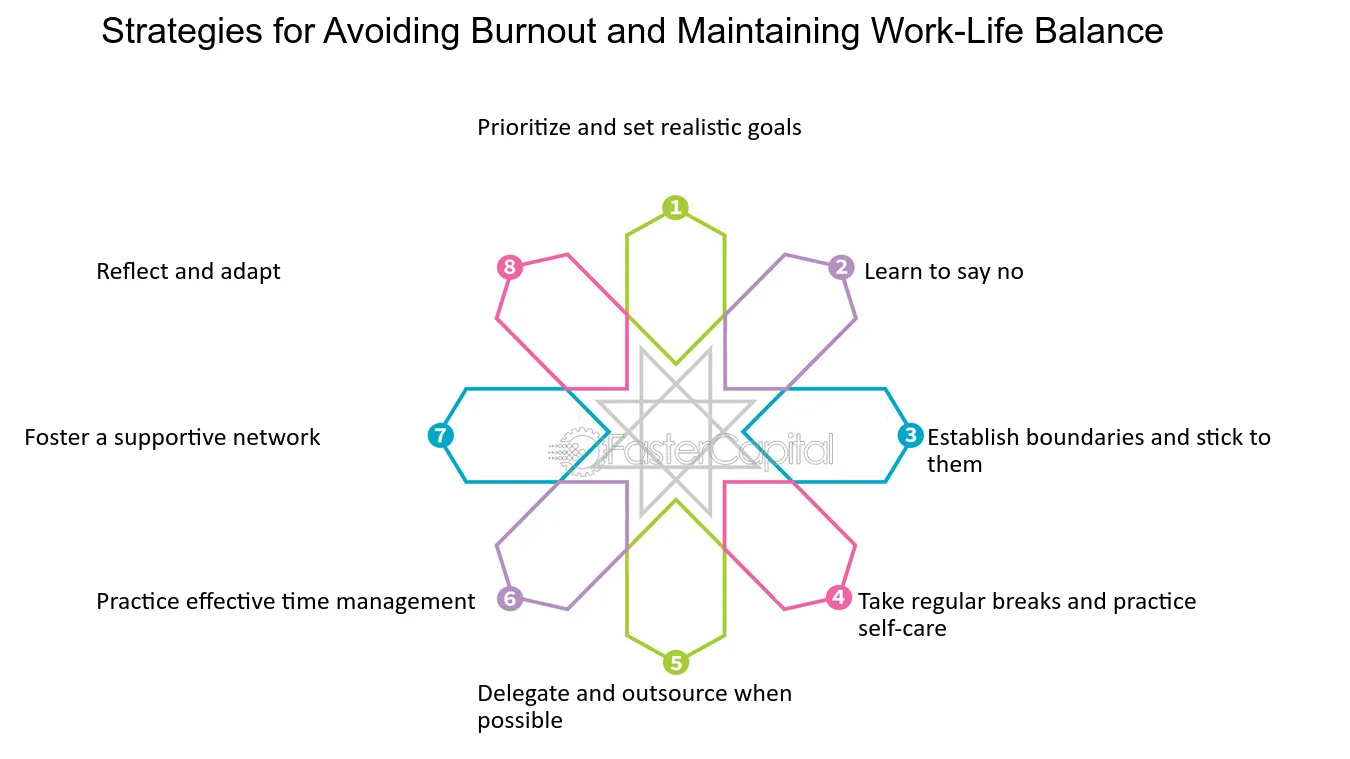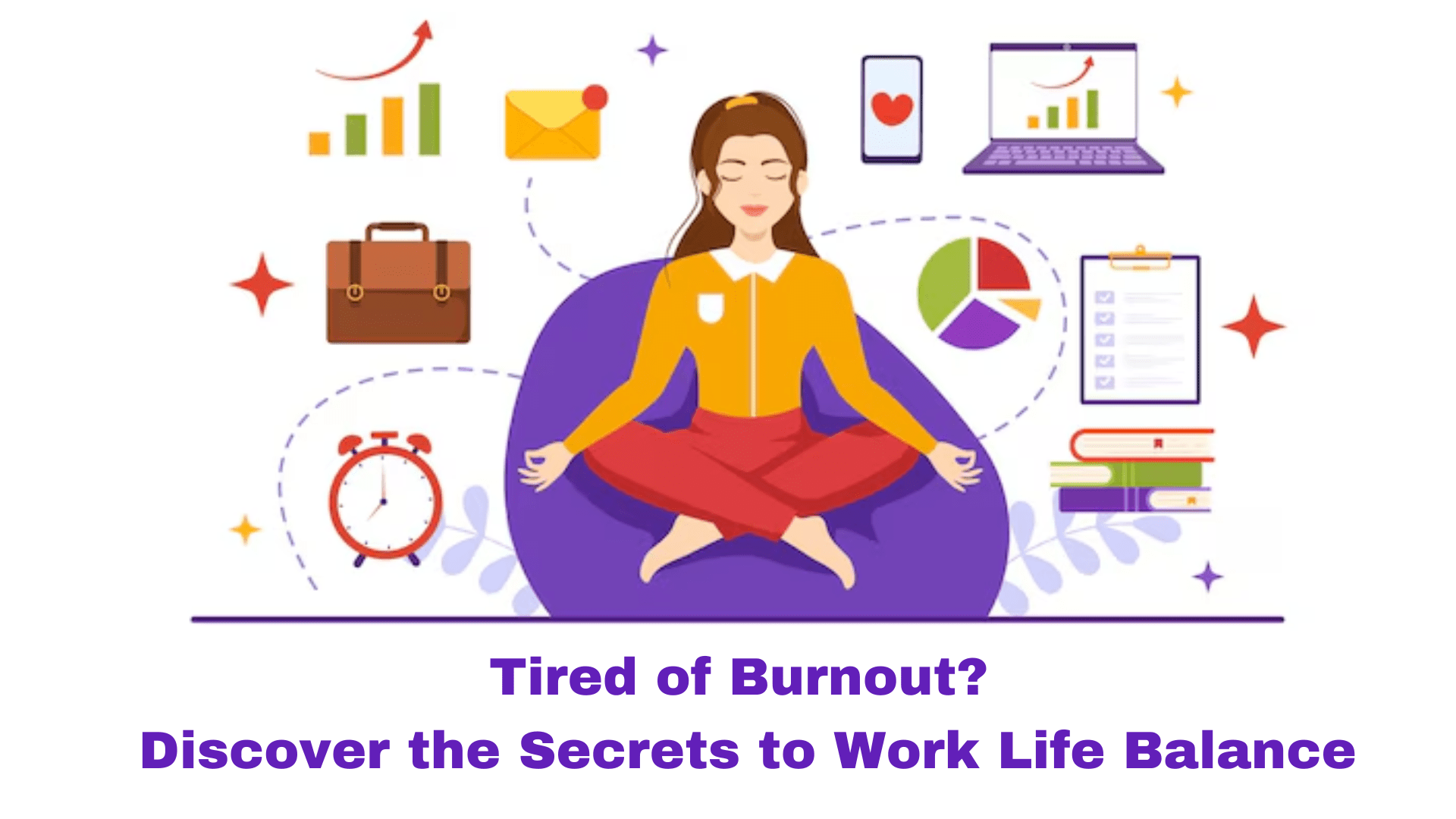In today’s fast-paced world, balancing work and life has become more challenging than ever. Many people find themselves constantly juggling job responsibilities, family time, and personal commitments, leaving little room for relaxation. Without proper balance, burnout can easily set in, leading to exhaustion, stress, and even health issues. The good news is that by making a few adjustments to your routine and mindset, you can create a healthier work-life balance and prevent burnout. Here are some practical strategies to help you manage your time and energy more effectively.
1. Set Clear Boundaries
One of the biggest contributors to burnout is the lack of boundaries between work and personal life. It’s easy to let work tasks bleed into your personal time, especially with technology allowing us to stay connected 24/7. To avoid this, set clear boundaries for yourself. This means defining specific work hours and sticking to them. When you’re off the clock, resist the temptation to check work emails or finish that last-minute task. Let your colleagues know when you’re unavailable, and make sure to communicate your limits at work and home.
2. Prioritize Self-Care
Self-care isn’t just about pampering yourself; it’s about maintaining your mental and physical well-being. Taking time for yourself is crucial in preventing burnout. Whether it’s exercising, reading, meditating, or just enjoying a hobby, carve out time each day to focus on activities that recharge you. This helps reduce stress and allows you to return to your responsibilities feeling refreshed.
3. Learn to Say No
A common cause of burnout is overcommitting. It’s important to recognize that you can’t do everything and that it’s okay to say no sometimes. Whether it’s taking on extra projects at work or agreeing to social events you’re too tired for, learning to decline is key to maintaining balance. Politely but firmly saying no helps you protect your time and energy.
4. Delegate and Share Responsibilities
At work, don’t hesitate to delegate tasks when you can. Sharing responsibilities helps lighten your workload, giving you more breathing room. The same applies at home. If you feel overwhelmed with household chores or family duties, ask for help from your partner, family members, or even hire help when necessary. Remember, it’s not a sign of weakness to ask for assistance—it’s a way to manage your workload more effectively.
5. Take Breaks During the Day
Working non-stop for hours without breaks can drain your energy and focus. To prevent burnout, take regular short breaks throughout the day. Stand up, stretch, go for a quick walk, or grab a healthy snack. These mini-breaks can help reset your mind, improve productivity, and reduce stress.

6. Create a Schedule (and Stick to It)
Organizing your day with a clear schedule helps you stay on top of your responsibilities while carving out time for yourself. Break your tasks into smaller, manageable chunks and set realistic deadlines. Make sure to schedule time for both work and personal activities. A well-structured day can help you maintain a healthy balance and avoid feeling overwhelmed.
7. Unplug Regularly
Technology has made it easier to work from anywhere, but it has also blurred the lines between work and relaxation. To prevent burnout, make a habit of disconnecting from screens, especially outside of work hours. Designate certain times of the day to be tech-free, allowing you to unwind and enjoy life without the constant buzz of notifications.
8. Set Realistic Goals
One of the main causes of stress at work is setting unrealistic goals. While it’s important to be ambitious, aiming for perfection or taking on more than you can handle can lead to burnout. Set achievable goals that challenge you but are also realistic given your time and energy. Celebrate small wins along the way to stay motivated and prevent feeling overwhelmed by larger tasks.
9. Maintain a Support System
Having a strong support system can help you manage stress and maintain balance. Talk to friends, family, or colleagues when you’re feeling overwhelmed. Sharing your thoughts with someone who understands can provide emotional relief and practical advice. Surround yourself with positive influences who encourage you to take care of yourself and your well-being.
10. Know When to Take Time Off
Sometimes, the best way to prevent burnout is by taking a break. If you’re feeling mentally or physically exhausted, consider taking time off from work to recharge. Whether it’s a short vacation or a mental health day, giving yourself time to rest can help you return to work with renewed energy and focus.
Final Thoughts
Balancing work and life is essential for maintaining long-term happiness and productivity. Burnout can sneak up on anyone, but by setting boundaries, prioritizing self-care, and learning to manage your time wisely, you can achieve a healthy balance between your professional and personal life. Remember, it’s okay to slow down and make your well-being a priority—you’ll be more effective in both your work and personal life if you do.







